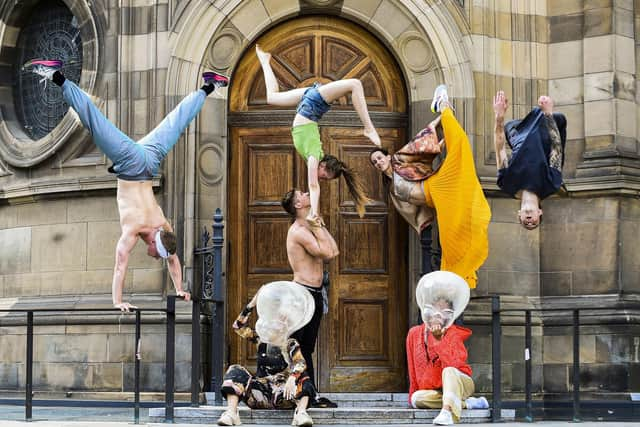UK Budget: Chancellor Jeremy Hunt's £8.6m festivals boost likely to provoke Scottish Government rethink about importance of culture sector – Brian Ferguson
Almost three years to the day since the plug was pulled on an entire summer programme in the face of Covid, the UK Government’s announcement has arrived just at the right time after a rocky road to recovery since then. Pandemic shutdowns and restrictions, including physical distancing and face coverings, went on for nearly two years in Scotland.
By the time the festivals were able to return to anything like their familiar form last summer, the landscape was very different. Although the overall attendance was well over 2.5 million, ticket sales failed to match expectations across the board. Festival directors and venue managers faced countless challenges, from lingering anxiety over Covid, to the impact of the cost-of-living crisis, inflation, and strike action by rail and refuse collection workers.
Advertisement
Hide AdAdvertisement
Hide AdThe autumn and winter have been anxious periods across the Scottish culture sector, thanks to soaring costs combined with prolonged standstill funding, alongside new threats like proposed curbs on alcohol advertising. An additional anxiety in Edinburgh has been the early impact of short-term letting legislation, which already appears to have reduced the number of “festival flats” while sending the prices higher than ever.


A month ago, the Scottish Government was facing a full-scale revolt over a planned ten per cent budget cut for Creative Scotland.
Since then, there has been a U-turn on that £7 million cut, a sum of £3.85m towards the King’s Theatre refurbishment project, a £1.5m bailout for music education charity Sistema Scotland, and a revival of the Edinburgh International Film Festival, five months after it ceased trading.
The outlook was definitely beginning to improve. But an injection of £8.6m into the festivals is undoubtedly a huge vote of confidence in the festivals – even if it is from an unlikely source and appears to have come out of the blue.
The reality is that, behind the scenes, the festivals have been quietly pressing the UK Government for years to properly recognise their contribution to the UK’s cultural sector and its economy – more than £300m at the last count.
The UK Government has already agreed £1m worth of support for new digital initiatives and a £10m contribution towards the creation of Edinburgh’s first new concert hall for century, which will be used by the Edinburgh International Festival and the Scottish Chamber Orchestra.
Its new backing appears to be a serious response to a 2030 vision for the festivals, published last summer, which highlighted the “fragilities” of events which had suffered 30 per cent “real terms” cuts in public funding support since the 2008 financial crash.
Advertisement
Hide AdAdvertisement
Hide AdThe politics behind the UK’s Government’s announcement are clearly intriguing, particularly after previous “power grab” accusations over levelling-up funding.
As ever with funding announcements, the devil will be in the detail, particularly over how the new funding will be allocated and prioritised, how much will end up in the pockets of performers and other festival workers, and to what extent Creative Scotland and the Scottish Government will be bypassed.
But it seems clear that, however uncomfortable the UK Government's intervention has been, it will likely provoke some hard thinking within the Scottish Government about culture becoming a far bigger funding priority. And that would surely be no bad thing.
Comments
Want to join the conversation? Please or to comment on this article.
